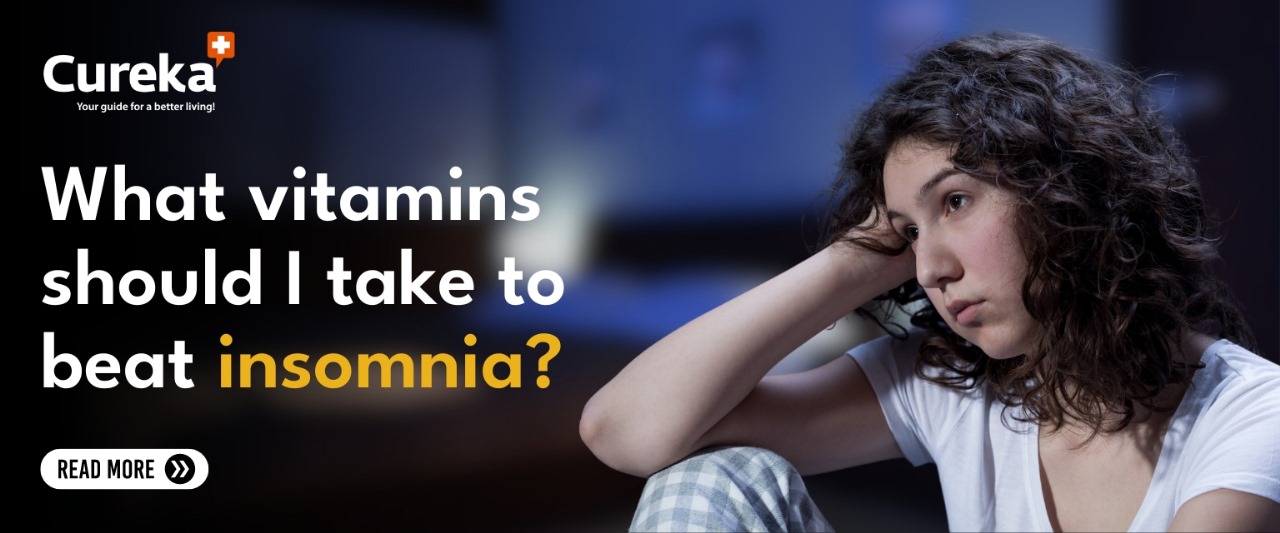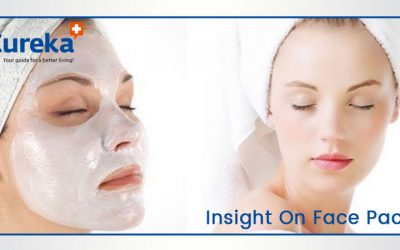What Vitamins Should I Take to Beat Insomnia?
Insomnia affects millions of people worldwide, making it difficult for them to fall or stay asleep. It’s more than just tossing and turning at night; insomnia can negatively impact your health, mood, and daily functioning. Lack of restorative sleep can lead to various health risks, such as diabetes, obesity, depression, and heart disease. While there’s no universal cure for insomnia, understanding its causes and incorporating the right nutrients into your diet can make a significant difference. Let’s see the best vitamins for sleep and how they can help alleviate insomnia, in this blog.
Common Symptoms of Insomnia :
Insomnia is not just sleepless night. This includes:
- Difficulty falling asleep after getting into bed.
- Waking up multiple times during the night and struggling to fall back asleep.
- Early morning awakenings with difficulty returning to sleep.
- Non-restorative sleep, resulting in daytime fatigue and lack of focus.
- Mood swings, irritability, and cognitive difficulties.
If any of these symptoms sound familiar, it’s time to address the underlying causes, and vitamins could play a vital role.
What Causes Insomnia?
Insomnia can result from various factors, such as:
Stress and Anxiety: High levels of stress can lead to racing thoughts, making it hard to relax.
Poor Sleep Habits: Irregular schedules, electronic device usage, and consuming caffeine late in the day can interfere with sleep.
Medical Conditions and Medications: Chronic pain, asthma, and certain medications can disrupt your sleep.
Hormonal Changes: Pregnancy, menopause, or shifts in your internal clock can lead to sleep problems.
Best Vitamins for Sleep and Insomnia Relief
Certain vitamins and minerals can help regulate your sleep cycle and improve sleep quality. Below are some essential vitamins for insomnia that should be a part of your diet if you’re struggling with sleepless nights:
Vitamin D :
A deficiency in Vitamin D has been linked to poor sleep quality. Less than 20 ml of Vitamin D in the body can increase the risk of developing sleep disorders. Foods like eggs, salmon, and tuna are rich in Vitamin D, but sunlight exposure for 10–20 minutes a day is also an excellent source. Vitamin D supplements can also be effective in restoring healthy sleep patterns.
Vitamin B Complex :
Vitamins like B3, B5, B6, B9, and B12 are integral in regulating the body’s production of melatonin, a hormone that promotes sleep. Deficiencies in these vitamins can contribute to insomnia. A balanced diet that includes whole grains, fruits, and vegetables, along with a B-complex vitamin supplement, can help improve sleep.
Theanine :
This amino acid increases the production of sleep-promoting chemicals such as serotonin, dopamine, and GABA. Theanine, commonly found in green tea, is known to reduce stress and induce sleep. If you can’t get enough from your diet, consider taking theanine supplements to improve your sleep.
Calcium and Magnesium :
Both calcium and magnesium play critical roles in muscle relaxation and sleep. Calcium aids in melatonin production, while magnesium helps maintain sleep through the night. A deficiency in these minerals can lead to interrupted sleep. Add leafy greens, nuts, and seeds to your diet or take calcium-magnesium supplements for optimal results.
Melatonin :
As a hormone naturally produced by the body, melatonin regulates your sleep-wake cycle. Supplements of melatonin can be used to reset your circadian rhythm, especially if you’re dealing with insomnia due to travel or work shifts. Taking melatonin for a few weeks can help you fall asleep faster and enjoy more restful sleep.
Iron :
Low levels of iron can cause fatigue, and iron deficiency is often associated with Restless Leg Syndrome (RLS), which can make it harder to fall asleep. To combat this, include iron-rich foods like spinach, tofu, and lean meats in your diet. Pairing these with Vitamin C can enhance iron absorption.
Tryptophan :
This essential amino acid helps produce serotonin, which can be converted into melatonin. Foods like turkey, nuts, seeds, and milk are rich in tryptophan and can aid in promoting sleep. Incorporating these into your dinner may help you drift off to sleep more easily.
Conclusion
There isn’t one cure-all for insomnia, but incorporating the right nutrients into your daily routine can significantly improve sleep quality. By addressing potential vitamin deficiencies and following healthy sleep practices, you may find relief from insomnia. Always consult a healthcare provider if your sleep problems persist or worsen, as they could be a symptom of an underlying health condition. These best vitamins for sleep and anxiety can be an excellent start to getting the rest your body needs.
References
- Vitamin D Supplementation and Sleep: A Systematic Review and Meta-Analysis of Intervention Studies – 2022 Mar – https://www.ncbi.nlm.nih.gov/pmc/articles/PMC8912284/
- Association of Vitamin B12 Levels with Sleep Quality, Insomnia, and Sleepiness in Adult Primary Healthcare Users in Greece – 2023 Dec – https://www.ncbi.nlm.nih.gov/pmc/articles/PMC10706823/
- A Novel Theanine Complex, Mg-L-Theanine Improves Sleep Quality via Regulating Brain Electrochemical Activity – 2022 Apr – https://www.ncbi.nlm.nih.gov/pmc/articles/PMC9017334/
- Anemia and insomnia: a cross-sectional study and meta-analysis – 2021 Mar – https://www.ncbi.nlm.nih.gov/pmc/articles/PMC7989983/











